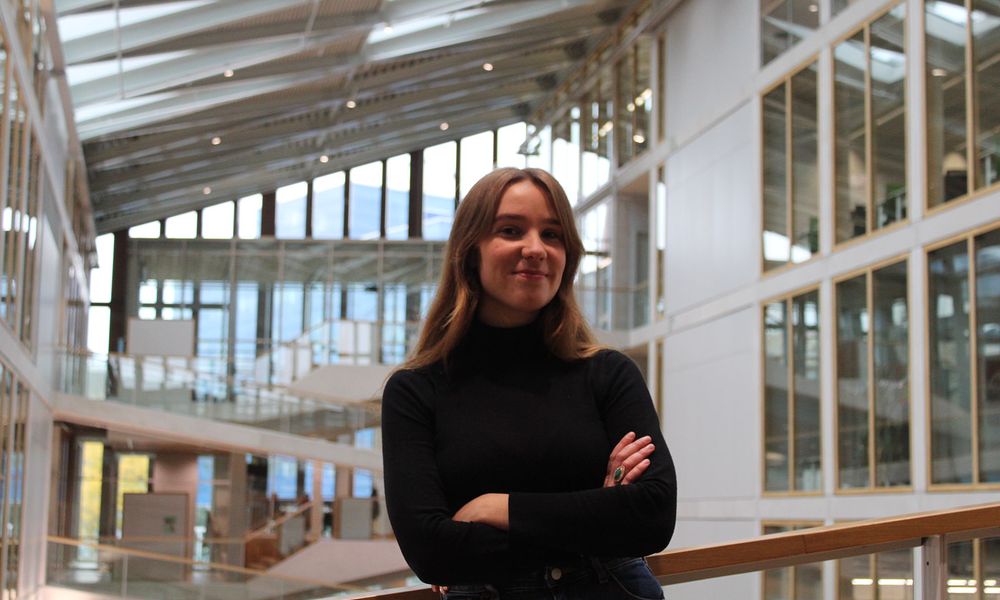'I have always been interested in learning about different countries and cultures'
- Student stories

Alumna Muriël Hendriks finished her bachelor Communication at Hanze before she enrolled in the master International Communications (MIC) programme.
'For my bachelor graduation assignment, I went into a strategic direction, which made me realise that I wanted to develop myself more as a communication strategist. Besides that, I have always been interested in learning about different countries and cultures. As the MIC teaches you about an intercultural and strategic approach to communication, it suited my professional interests very well!'
'My bachelor programme provided me with a good foundation of theoretical knowledge to start this master. Some parts of communication and intercultural communication theory were already familiar to me. However, the master goes more into depth, and you go through more theory at a quicker pace. The biggest difference that I experienced between my master and bachelor is the approach to research. During the bachelor's programme, the research was applied. Although the research conducted for the master is also applied in nature, it contains more academic elements. Having to familiarise myself with this new approach to research, the research courses is what I spent most time studying. Other courses that are part of the curriculum are about communication theory, theory on culture, reflection and group projects.'
'Another difference between the master and my bachelor is that there are no exams. Instead, you apply all theory you've learnt in so-called ‘artefacts’: essays, projects and reflective statements, amongst other things. Each block, you submit a portfolio with your artifacts of that period, for which you will receive a grade. For me, this form of assessment is ideal. Theory always interests me, but in order to process it optimally, I have to apply it. It allows me to more deeply engage with what is being taught than if I have to learn it for exams. You apply what you have learnt in projects, which you conduct for a company either hypothetically or for a real client. An example of such a project that I have conducted with a team is creating a communication strategy for a Dutch potato company to increase trust amongst and stakeholder dialogue with (potential) Tanzanian potato farmers.'
'Reflection is also important in the MIC programme. You will look back on how your newfound knowledge is useful in a professional setting and how it relates to the professional role you took on that block. An example of reflection is that you will learn about culture and use this knowledge to reflect on your own cultural ‘heritage’. It made me think of why I do things the way I do them, and how culture influences my values and how I see the world. When working in an international setting, you first have to be aware of how your culture has shaped you, before you can bridge or understand the differences with someone else’s culture. If I had to read the theory and take an exam on it, I don’t think I would have thought about it as deeply as I have during my time at the MIC.'
'Engaging and bonding with people from other countries also challenges your cultural viewpoints. Therefore, to me it is a big plus that at the MIC, emphasis is put on the importance of community. You work on projects together, and there are community building sessions. My experience is that the students, most of them who study in Groningen or in the Netherlands for the first time, also put in a lot of effort to get to know and bond with each other. Besides that, people are curious to learn about each other’s cultural background and different viewpoints. I have always felt comfortable to be myself at the master, and I have made friends with people from all around the globe.'
'So, if you are interested in strategic communication, having a close international community around you and being challenged in your professional and personal viewpoints, this master is definitely something for you!'
How satisfied are you with the information on this page?